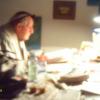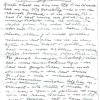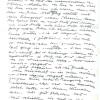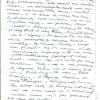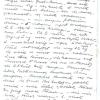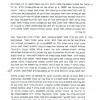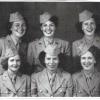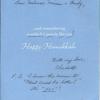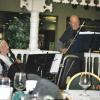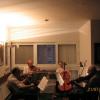This page is not ready.
Books
My mother and I were working together on her autobiograohy.
It is not yet finished. In the meantime, I am posting information relating to content in the book.
"Ned's Story" Malvina's sister , Lenke, was married to the chief rabbi of Brno and Ned's family were among his congregants. Malvina met Ned when he was 13 when Ned was already playing the violin and Ned said then that when he grew up he wanted to play the violin for kings and queens. I put together "Ned's Story" from the versions of the story that Ned sent us. One of the versions of his life's story was prompted after Ned's donation of his violin to Yad VaShem in Israel. I am including also part of the letter he received from Yad VaShem.

I was born in the year 1920 in Brno, Czechoslovakia. In our family were 4 children and I was the youngest. My parents were Mendel and Sarah Spindel. They worked hard to provide a good living for their children.
Brno, the capital of Moravia, was both an industrial and cultural town. The surroundings were lovely, and within its borders were many scenic parks. This town had two main kinds of cultural components: One Czech, with its University, opera, theater, symphony orchestra and many publishers. And, the Germans in the town had their own cultures. My feelings were very patriotic. I cherished the Czech folklore and culture. From a tender age, I was in love with music, especially the violin which enchanted me.
When I was 8 years old, my parents bought me a violin. I didn’t know that the violin is the most difficult instrument to study, I just wanted to play the violin. Nobody forced me, nobody begged me. I even didn’t know that the sweet dream of Jewish mothers was that their child play the violin. Time flew by, I made nice progress on the violin and later I became a student at the Music Conservatoir in Brno, which I greatly enjoyed. My parents, with joy and pleasure bought me a violin with a lovely sound. This violin I loved from the very beginning. It was handmade by Thir Johann George about 1770. When they saw how excited I was, they didn’t hesitate to purchase it for me. I made progress and dreamed that one day I would be able to play for kings and queens.
It was March 18, 1939. My sister invited Michael, my brother, our parents and me to a special family dinner. It was around noon. I remember she asked me to bring the violin and a small suitcase with my brother’s belongings and mine. It seemed an unusual request. That day, she suggested that our parents should stay with her and that my brother and I should leave Brno right away. She said our parents are old and unable to run and she would look after them. She gave us money and told us to go quickly, as time was of the essence. By her voice, we understood the seriousness of the situation. With broken hearts and tears in our eyes, we left our family, the world we knew and went out into a hard world. It was the last time we saw our parents. On the way to the railway station, we witnessed the German troops marching through town. We took a small suitcase and the violin and went fast to the railway station. There we were stopped by a Czech policeman who asked very firmly, “Where do you think you are going?” My brother, Michael, who was 6 years older, to my surprise, answered, “We are in a hurry as we are giving a concert – and our train is leaving any moment now.” The policeman saw we had a violin and a small suitcase. He let us pass. That was the first time the violin saved my life.
Now, Michael had an idea. I should perform concerts and he would be my manager. This meant he would look for a place to perform concerts, sell tickets and advertise. I must say, he was a terrific impresario. It was as if he were born for this job. He arranged a pianist, a singer, a music hall and an audience, mostly from the Jewish community. My first concert was a great success.

Ned, on left, and his brother Michael in Crakow in 1939.
Malvina visits Ned in Israel in 1989.
Ned in Israel in 2011 (click photo)
Ned's wife, Shulamit, is a Jewish immigrant from Russia. I just asked her if she had been able to attend a synagogue growing up in Moscow. She emailed me that there was only one synagogue in the center. She writes, "Old people like my father" were visiting and praying in Yiddish. "For young it was very dangerous. You whould be throw out from the school & never study again!"
"Synagoge in Moskow was keept for tourists."
August 14 email from Shulamit:
First time, when young people start go to the Synagogue, was 1971 when start Aliyah to Israel, because people were thrown out from their work & wanted to have some information. We didn't go inside, only around, but very soon we know that among us are many collaborators from KGB. It become dangerous. I was worried about my sister & my daughter. They could take her & put in the shelter. Everybody, who put their documents for Israel, (would) be considered as a traitor. I was afraid for my mother & sister. I stopped calling them. [Note : Shulamit had applied for immigration to Israel. so she didn't want to implicate her mother and sister. She had a family.] So, we were sitting at home. We were afraid to go out, because KGB already start to watch. Some people were beaten. It happend with conductor Aronovich,when he walked at evening with his dog around the house etc...We had such life nearly one year till time, when American President R. Nixon visited Russia. In year 1972 at summer time all unimportant people, like me, without state secrets, were thrown out & our Russian citizenship was cancel. For that everybody recieved 100 $ . Vith thise money we left Russia.
A note to Ned's story:
Ned always wants to thank and find out who the man was who approached Ned in Cracow, Poland and gave him the opportunity to go to London..
Below you can read a letter sent to Ned by his sister, Syme, after the war, from Brno (their hometown in Slovakia), dated October 13, 1945. The original letter (copy here) was in German. (click boxes) His family has translated the letter into both English and Hebrew. I have retyped the English translation.
Ned, my love, I received two letters from you on 27/9, as you know my birthday is on 25/9.
Your letters were the most wonderful gift. I am very grateful to you for you have made me very happy. Nedianko, I would give a lot to be able to see you now, to feel you close, to hold your hand, without the need to talk about everything that I went through, everything I endured during 4 years. For it is very difficult for me to talk or write about it, I do not think I have the words to describe it.
Anyone who has experienced Auschwitz firsthand, the concentration camp, cannot forget the atrocities and the evil they saw there -for the rest of their lives. 5000 people were burned (gassed) there daily, everyone, mothers and children up to 12 years of age, without any distinction whether they were sick or not, there was a routine, if you were liked by the SS you were spared, otherwise you were sent directly to the gas chambers.
You will never be able to understand it, even if G-d forbid you were there. You will not be able to comprehend the sadism and the lack of humanity, I would like to tell you briefly, I couldn't talk to anyone else about it, Nedianko, so I will do it here and now briefly. In March 1942 mother (my muti) left with the Transport to Terezin, in April the same year Fritz and myself followed her. We stayed with mother but for a short time. Then mother was taken to Poland. Nedianko, we have no mother, she was burned and gassed in the gas chambers. This great and good woman was taken from us in such a cruel way.
Then, they took Fritz and myself to Auschwitz. Upon arrival they separated me from Fritz; the man I so loved is gone. He too was burned in gas chambers. Then the Auschwitz ordeal had begun. As I mentioned earlier, 5000 people were gassed daily, there were also transports taking people to the hard labor camps in Germany. The "lucky" ones were sent to these camps if they were liked and picked by these "dogs". I too was sent to the labor camps. In Auschwitz they shaved our heads, gave us only wooden shoes and prisoner's clothes, without socks, without underwear, without soap or towels; shaved and naked we were sent like cattle on our way to German camps. I wasn't allowed to take even a tiny picture of Fritz with me. Then we arrived to a place called Matzenbach in Germany. There we were forced to dig trenches in freezing temperatures. Daily food ration was 150 gram of bread and murky filthy water called "soup". The work was arduous and waring out; we labored from 7 in the morning till 5 in the evening, with 15 minutes break at noon. We dug under the watchful eyes of the SS soldiers, there were horrific beatings and worse, I do not want to even go there. It was horrible. Every day we asked G-d to save us from this nightmare.
There were 200 women along with me, each day a few died from starvation or illnesses. I got sick twice with pneumonia but continued working, because women who didn't work were sent to gas chambers right away. When the Germans understood that Russians were getting closer and that they lost the war, they received an order to kill us all. Seven of us tried to escape Matzenbach and run towards the death concentration camp - Gross Rosen. I did not want to live like that any longer I wanted to get shot, that is why I tried to run away. Five of the women were shot shortly, and only my friend and I managed to escape, to our surprise. We survived. Until our liberation we went through seven gates of hell, but we survived. I was worn down (depleted), weighing 32 kilograms. I don't know why, but the Russians we met took us along with them. We reached the defense front lines, but the Ruissians took care of us. On our way we passed by Germany, Poland, Hungary, Slovakia and at the end of May I reached Brno. I was shocked by what I saw: the city was completely destroyed. I walked along the streets I loved so much and cried. I cried about my parents, my husband, my missing brothers, my friends - everyone was gone, dead, nothing survived - only two small Franciscan houses.
My mother met Charlotte after the war. They always remained friends. Charlotte was from New York and had wanted to help in the war effort after the war and was sent overseas.
In the photo: Charlotte Shayne is in the top left,
with her friends, other women who served in WWII.
Click the photo to view.
My mother would have wanted me to put on this page that she obtained ID papers for herself -- when she got the name Gizi Kovacs from a
Mr. Jozef Adler
in the most critical times of the war in Budapest. She had always said that he saved her life.
This page:
Ned's Story
¶ - Jews in Russia
Letter to Ned from his
sister Syme in 1945
photo of Charlotte
¶ - Mr. Jozef Adler
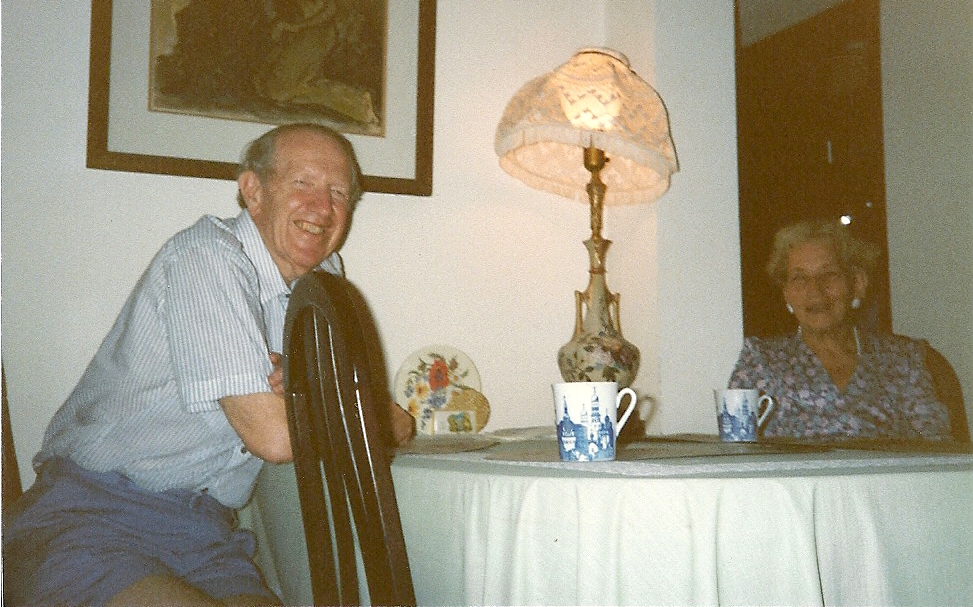
Ned passed away January 2015 in Israel
